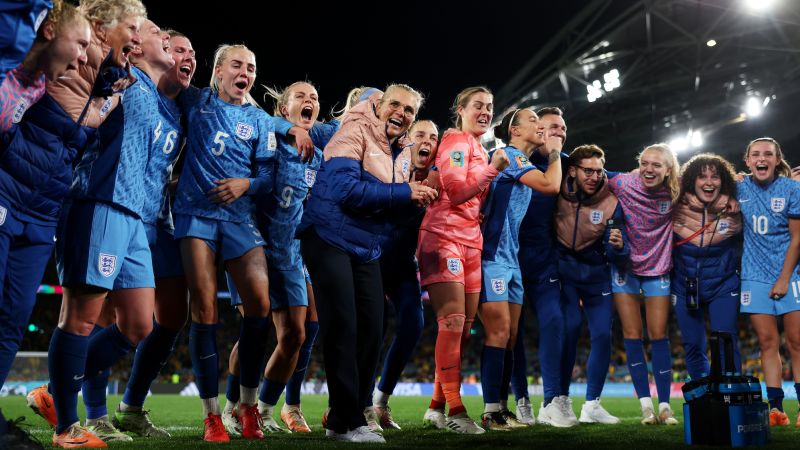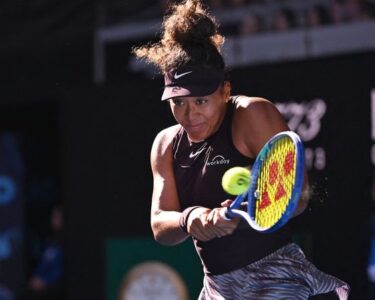CNN
—
The Lionesses had seemingly lost their ability to hunt.
England had been on a poor run of form, at one stage losing seven out of 11 matches, and head coach Phil Neville was winding down the days until his exit.
It was announced that Neville’s successor was to be the highly successful Netherlands head coach Sarina Wiegman, who had led her home nation to back-to-back major tournament finals, including a European Championship win in 2017.
While success was always a possibility for this talented group of footballers, nobody could have imagined what was to come under Wiegman’s leadership.
Turning cubs into Lionesses
In the last major tournament before Wiegman took over, England crashed out in heartbreaking circumstances.
In a tight World Cup semifinal game against the US – the eventual champion – England captain Steph Houghton missed a crucial late penalty as the Lionesses fell to a 2-1 defeat.
It was the third major tournament in a row that England had fallen at this stage. With expectations and pressure growing, and with the European Championship on home soil on the horizon, England appointed a coach who had the crucial knowhow in getting a team over the line in tournament football.
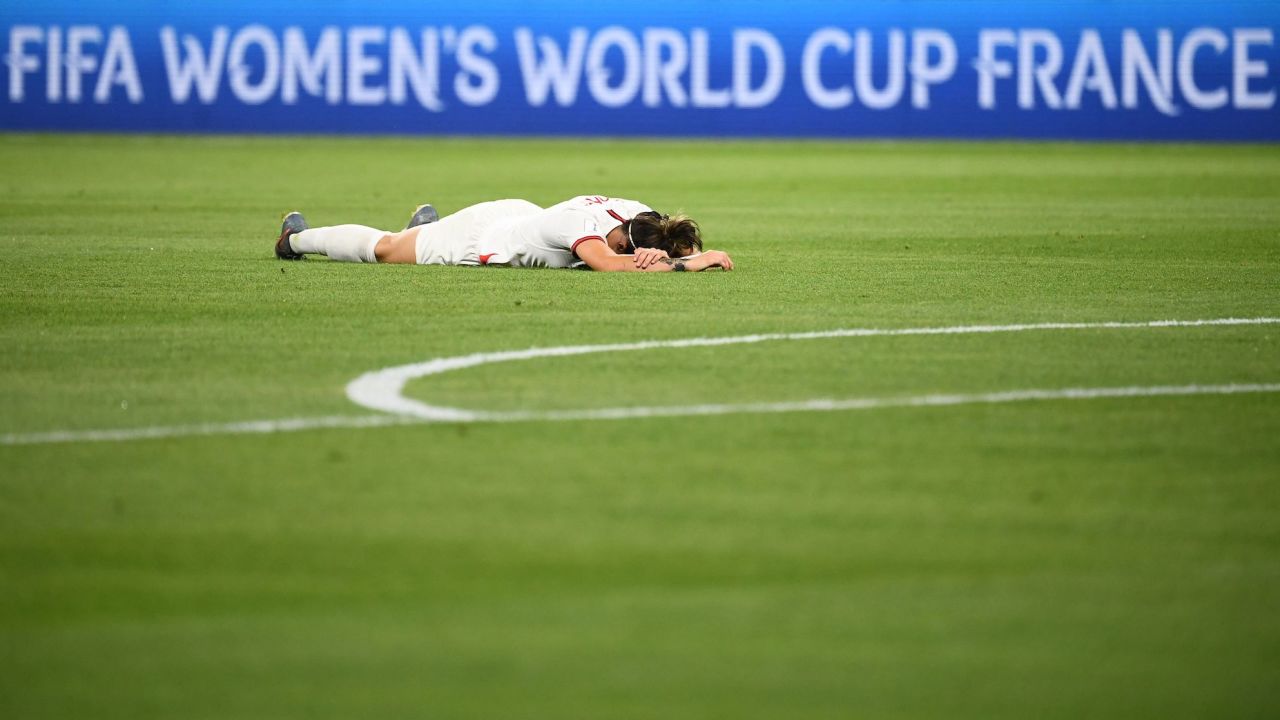
“She’s a proven winner and we’re confident she can take England to the next level, giving us the best possible opportunity of achieving our ambition to win a major tournament,” said Mark Bullingham, the English Football Association’s CEO, when Wiegman was appointed two years ago.
While the England players’ abilities speak for themselves, Wiegman has helped to instill a formidable team mindset in the group through some “non-negotiable” philosophies.
“I think in a team you always have to do your best,” she told CNN before the start of the Women’s World Cup. “That doesn’t mean you always have to run the fastest. That’s something different.
“It’s doing what’s best for the team and what’s demanded of you, on and off the pitch.
“When you start doing things on your own in a team sport, that’s really hard. You’re not going to reach the highest potential.”
Heading into the Covid-19 delayed European Championship a year later, England was on a brilliant run of form of free-flowing soccer and goals aplenty.
That form continued throughout the tournament, with the Lionesses scoring goals for fun on the way to a historic final at Wembley against Germany.
In a tense game against an experienced Germany side, the Lionesses sealed a 2-1 win to end England’s 56-year-wait for a senior international soccer trophy.
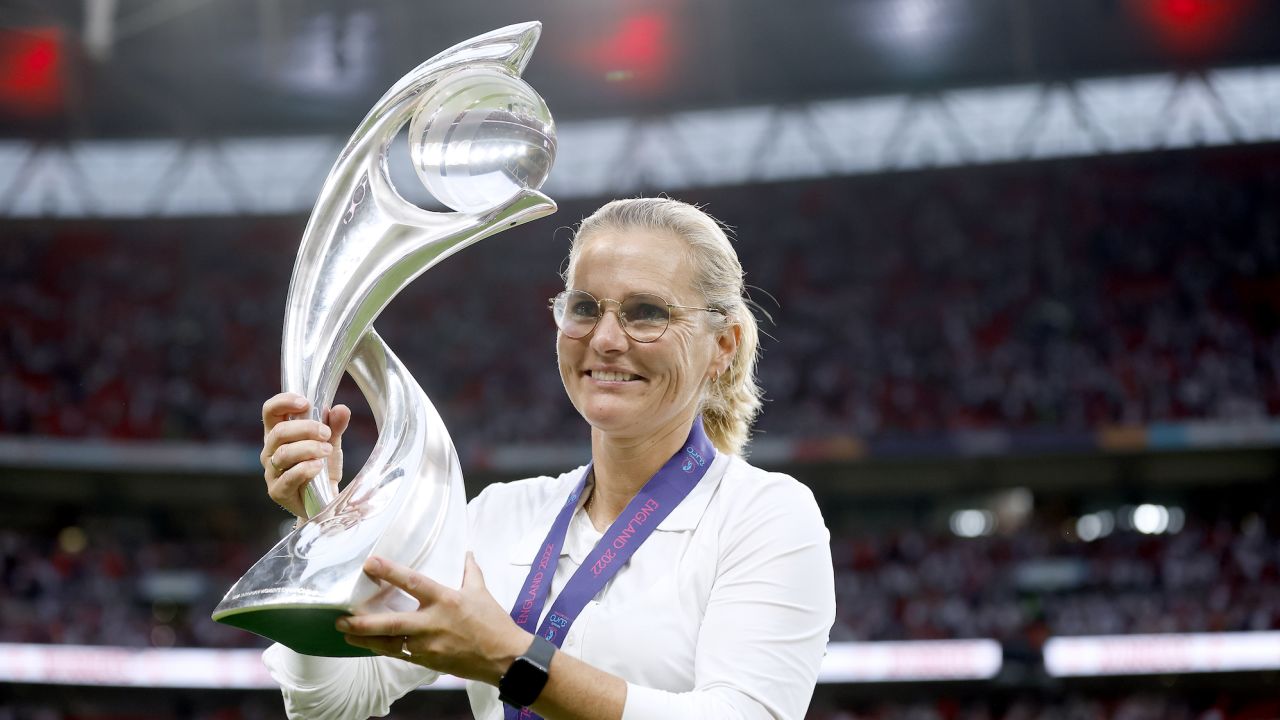
Overcoming adversity
After the success of the Euros, England was among the favorites heading into the World Cup, although with injuries piling up pre-tournament Wiegman has had to find ways to rebuild her squad without crucial players.
England captain Leah Williamson suffered an anterior cruciate ligament (ACL) injury in April, joining another star player from the winning Euros squad – Beth Mead – in suffering the same injury.
“I’m a pretty positive person but, of course, I also have feelings,” Wiegman told The Independent ahead of Sunday’s final. “I feel very privileged to work with this team. It has been so great.
“You have some setbacks with some players that got injured, which was very sad for them, but then you have to switch and say: ‘OK, this is the group of players we think are the best and this is the team now. We are going to go to the World Cup with them.’”
With these key players out of the squad, Wiegman has reinvented the side throughout the World Cup and has implemented a system where the team can fluidly switch between different styles and formations.
Humbly, Wiegman also attributes a successful change to a 3-5-2 formation to one of her assistant coaches, Arjan Veurink.
“During the first two matches of the tournament we were struggling a little bit and also had moments where we were a little bit vulnerable,” Wiegman explained to reporters.
“So after the second match Arjan [Veurink, her assistant] came to me and said: ‘Sarina, isn’t this the time to go to 3-5-2?’ I said: ‘You’re completely right. This is the moment, with the players available, we can get more from their strengths in this shape.’ So then we changed it.”
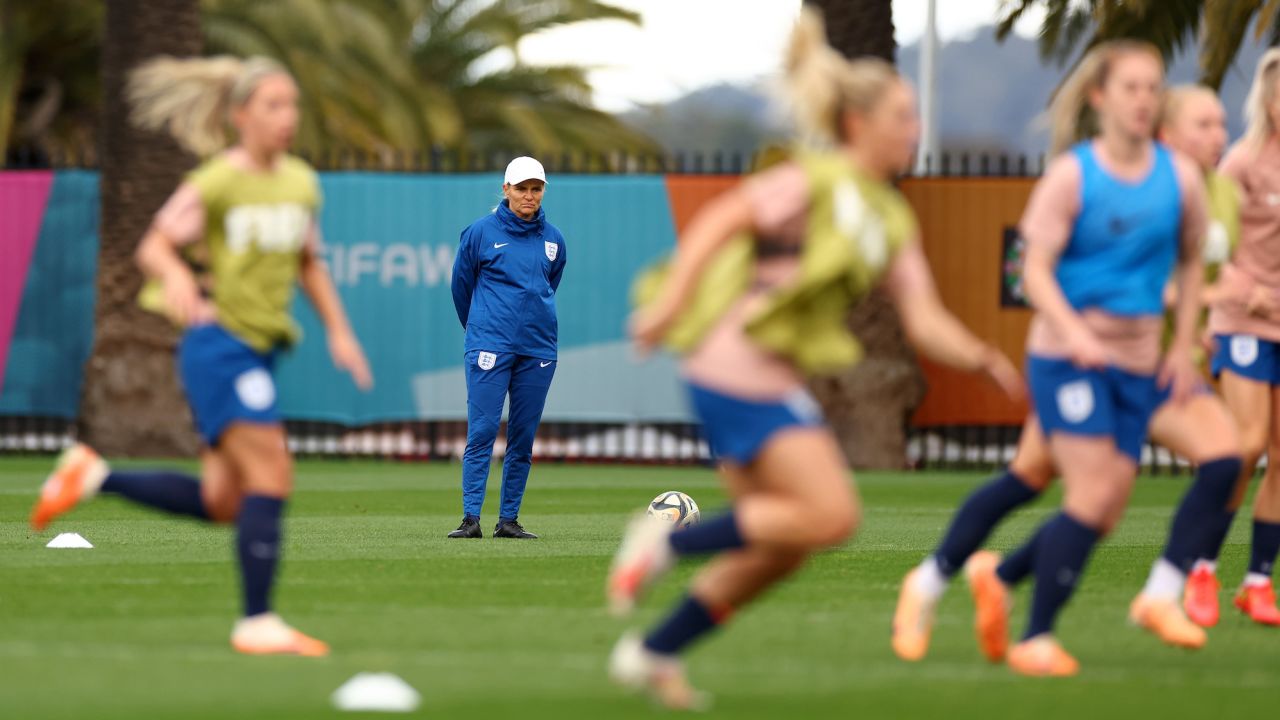
In the 3-5-2 formation, Wiegman has removed one of the forward players for a defender, which has allowed the Lionesses to have greater control in games and be less susceptible to counter-attacks. It has also given more freedom to some of England’s attackers, especially the dangerous Lauren Hemp who has been freed of some of her defensive responsibilities and consequently thrived in attack against Australia in the semifinal.
But not only did Wiegman have to deal with injuries ahead of the tournament, key midfielder Keira Walsh picked up a knee injury during the group stages and breakthrough star Lauren James was shown a red card in England’s round-of-16 win against Nigeria, meaning England not only had to play the rest of that match with 10 players but without James available for the quarterfinal and semifinal.
“We dig deep as a group and we believe in our ability and, first and foremost, we believe in what we’re getting told to do,” England winger Chloe Kelly told the BBC after the tense penalty shootout win against Nigeria.
Can England go back-to-back?
A belief in the manager has led to unwavering support in Wiegman’s decision making and ideologies.
One manager who knows a thing or two about women’s football is Chelsea Women’s manager Emma Hayes and when speaking to CNN’s Amanda Davies ahead of Sunday’s final she was full of praise for the Dutchwoman.
“A top, world-class manager – she’s demonstrated that. To go back-to-back Euros, plus World Cup, shows her qualities,” said Hayes.
“I think [she’s] fulfilled the potential of a group that were hitting their peak and she’s come in and steered that ship to winning.”
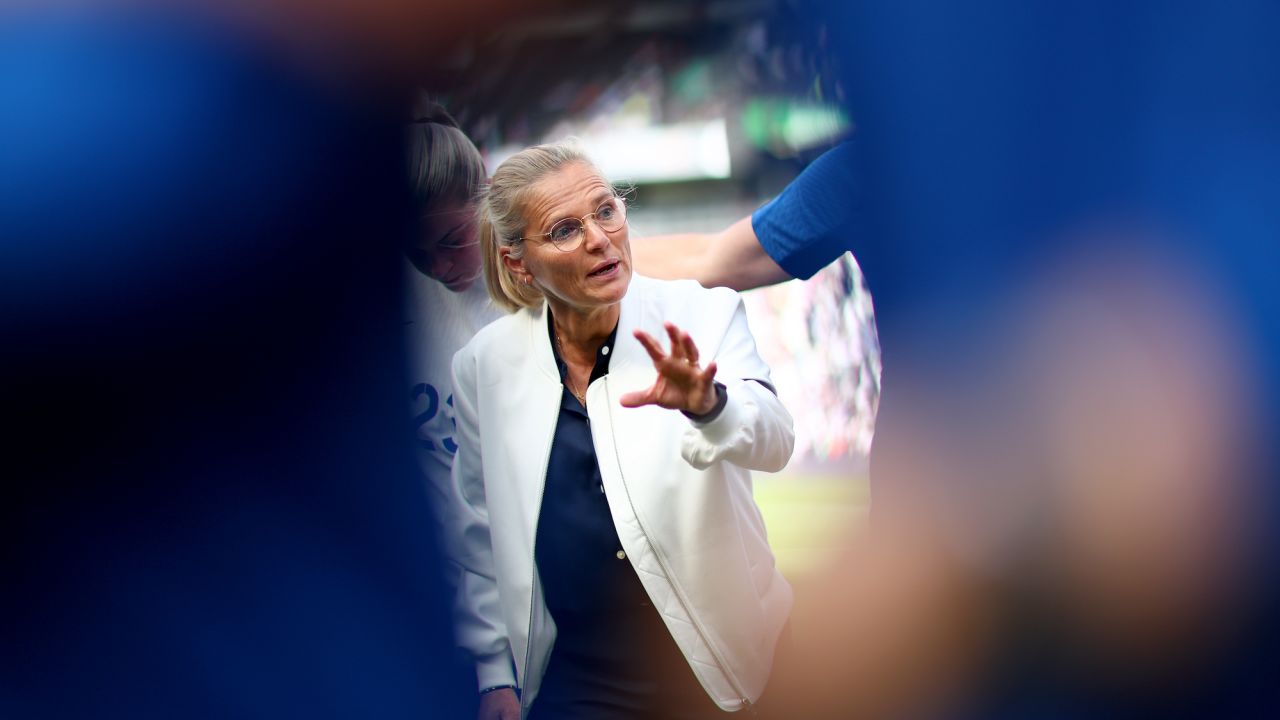
Throughout her international managerial career, Wiegman has shown her ability to turn nearly-teams into winners. Hayes spoke of the winning machine that the 53-year-old has cultivated.
Before the World Cup, England had won 26 of the 32 games under Wiegman and had only lost once – a friendly against Australia in April. The Lionesses have since added six wins to that tally in Australia and New Zealand.
“They’ve become a bit of a machine. You know to think we’ve gone from a Euros to a World Cup final in the space of 12 months is just unbelievable,” Hayes said.
“We’re going to feel a little bit spoiled, but at the same time we’re going to be in the World Cup final on Sunday and it’s amazing for everyone.”
England’s success has led to Wiegman being recently linked to the vacant head coach role with the US Women’s team.
“I’m really enjoying my job and I have the impression that people still like me doing that job,” Wiegman clarified to reporters this week. “I have no plans to leave.”
No matter what happens in the World Cup final on Sunday, Wiegman has helped grow the women’s game in England immeasurably. But, for the team, winning on Sunday is all that matters.
CNN’s Amanda Davies and Ben Church contributed to reporting.


